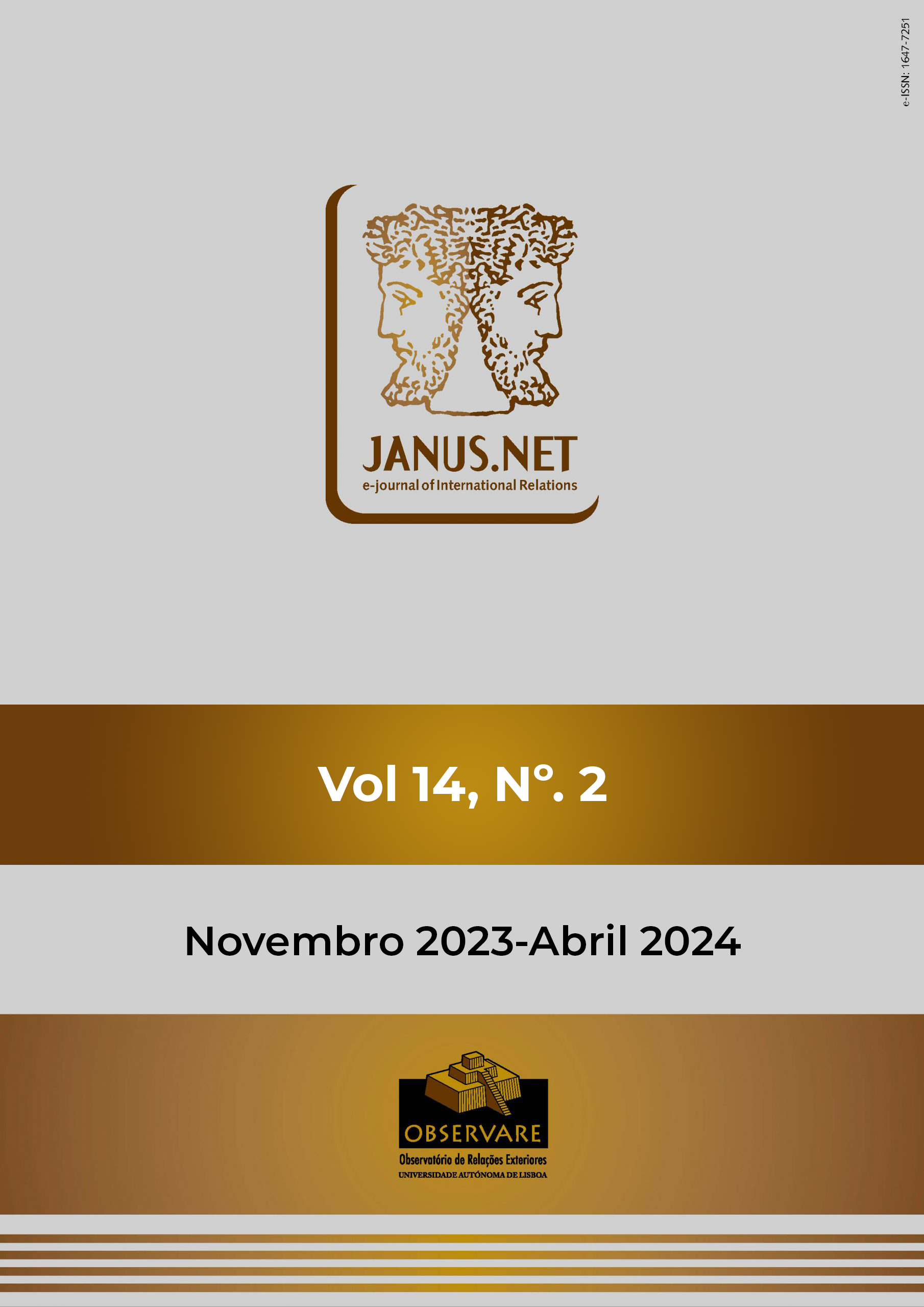NEW COLD WARS IN THE HIGH NORTH? RUSSIA AND THE PROGRESSIVE MILITARIZATION OF THE ARCTIC
DOI:
https://doi.org/10.26619/1647-7251.14.2.2Keywords:
Arctic Basin, Russian Federation, Polar Silk Road, expansionism, militarization, tensionsAbstract
We consider the Arctic Basin as an emerging focal point patent in the political and strategic conjuncture in the global framework. If observed in a “quasi-equidistant azimuthal projection”, this basin borders five riparian States, although it includes many others that interact with these five. A formal international organization, the Arctic Council, was created to try to regulate the multiple interests that converge on it. International law has not been sufficient to carry it out, if only because security matters are not part of its purview. On the other hand, the mere fact that it is an area related to a maritime basin, which bears many of the traits of “a lake”, raises unexpected difficulties, and is often poorly understood, in terms of the emergence of its centrality. Unlike other “area studies” that we know better, we often tend to have little awareness of its growing importance. In this study, I try to define relational moments in the growing tensions that make this region a crucial region. It should be noted that, in this regional area, cooperation and competition links are growing more and more evident. Of the five riparian states (Denmark-Greenland, Canada, USA-Alaska, Russian Federation, and Norway), four belong to the Atlantic Alliance, as well as the accession of Finland and Sweden (both since their inception full members of an Arctic Council which has no security competences) into the Atlantic Alliance in the High North, which shall tilt the balance by leaving Russia as the sole non-NATO in that region. In the current situation, tensions are becoming more acute due to the convergence of many other states that are aligning with the previous ones. I will argue, as it seems obvious to us, the regional rising tensions and the militarization associated with them, take place in moments and phases linked to intervals of a Russia that regards itself as ever-expanding, and its potential northern surpassing by China. The purpose of this work is to demonstrate that most facets of this temporal iteration in the adversarial tension processes have guided the recent historical evolution regarding the militarization of this basin. Albeit its’ variable geometry, clearly, the Wider Arctic Basin justifies its treatment in terms of an Area subject to a geopolitical analysis.


